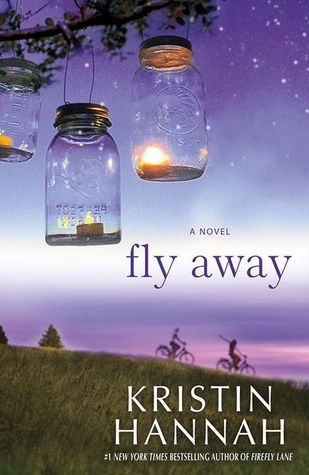“Fly Away”
By Kristin Hannah
416 pp. St. Martin’s Press.
$18.77
“Fly Away” is the second book in the “Firefly Lane” series by Kristin Hannah, and picks up where its predecessor, the best-selling novel “Firefly Lane,” left off.
In “Fly Away,” readers revisit Tully Hart as she tries to overcome the untimely death of her best friend, Kate Ryan. Tully, the former host of the talk show “The Girlfriend,” falls from her high, lavish life, as her best friend Kate’s death consumes her reality. Without Kate or her goddaughter, Marah, who has run away, Tully has no one to turn to and runs her car into a cement block in a haze of alcohol and drugs. On the brink of death, she is forced to face her past and revisit her memories to determine whether life as she knows it is worth living..
Hannah, a former lawyer-turned-writer and a New York Times Bestselling author, is known for her award-winning novels “Firefly Lane,” “The Great Alone,” “Winter Garden” and “The Nightingale.” She has the ability to transport readers to a carefully detailed, emotionally engulfing world. Her novels have been published in more than 40 languages, adapted into films, and granted numerous awards. “The Nightingale” was voted best book of the year in 2015 by Buzzfeed, Amazon, and iTunes, and won the Goodreads and People’s Choice awards.
Compared to “The Nightingale,” where the reader was sucked into the world of Vienne and Isabelle from the first page and eager to learn more of their story, “Fly Away” is so slow-moving it almost requires the reader to take a break while reading it. While Hannah does respectably maneuver the story between perspectives and timelines, there is an unnecessary amount of repetition in the plot. When the perspectives switch, the story line does not progress; rather, it backtracks and tells the story again from another perspective. This book is definitely not a page-turner, nor does it give readers what they anticipate when they read any book: a myriad of emotions and a desire to continue reading. There is no climax, as the reader knows the entire time that Tully is in the hospital, and, while there are many characters, there is no character for the reader to fall in love with, empathize with, and latch on to.
While Hannah fails, however, she also rises. Readers can appreciate the seamless way she alternates between Tully’s presence in the hospital and her flashbacks, until she finally wades toward a neatly tied-up ending. Furthermore, the novel engages with thought-provoking themes and questions, such as motherhood, loss, new beginnings and whether history is destined to repeat itself.
While “Fly Away” would certainly be disappointing if it were Hannah’s first novel, it’s the brilliance of her previous works that makes readers eager to plunge into each world she builds.













